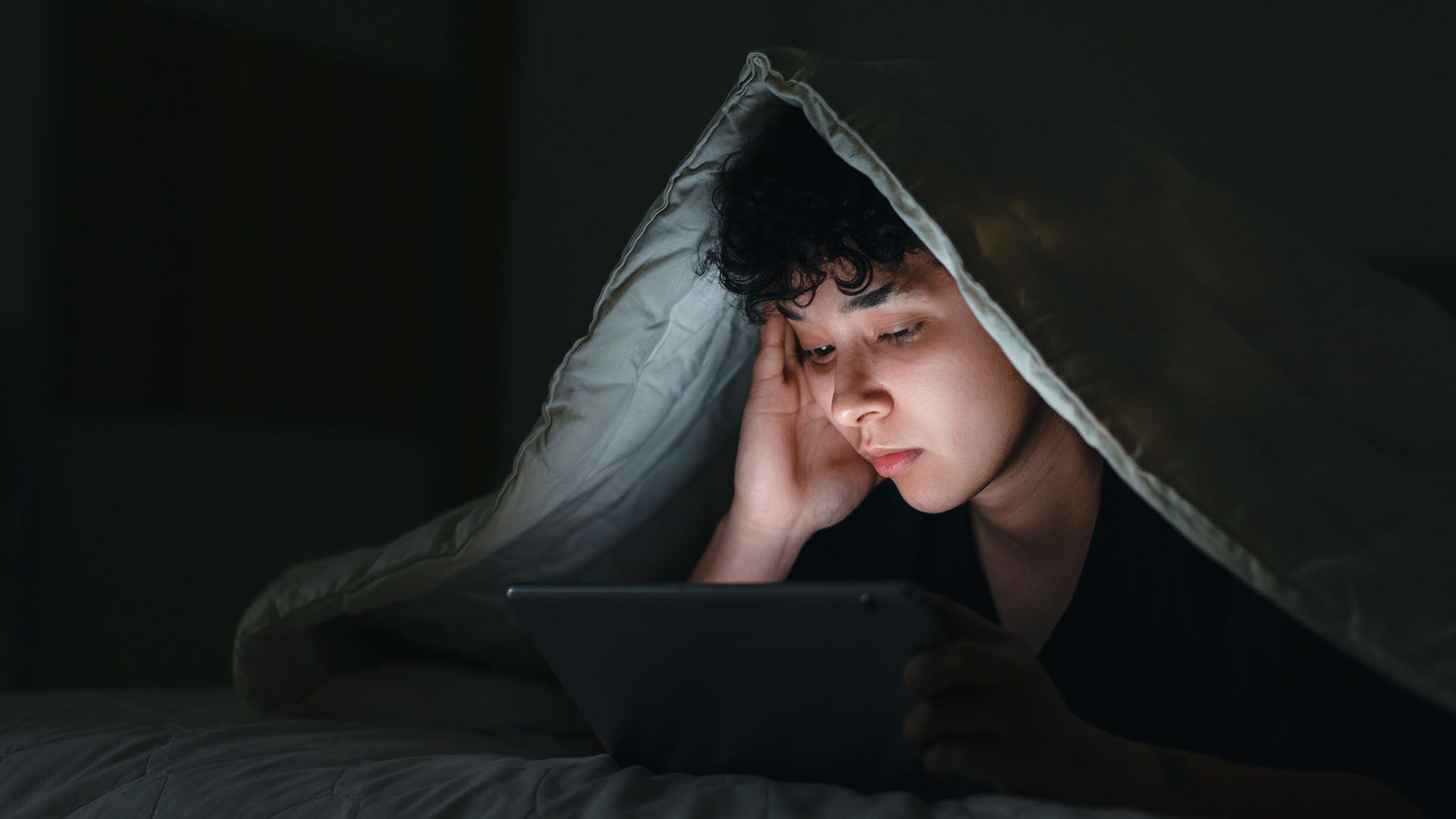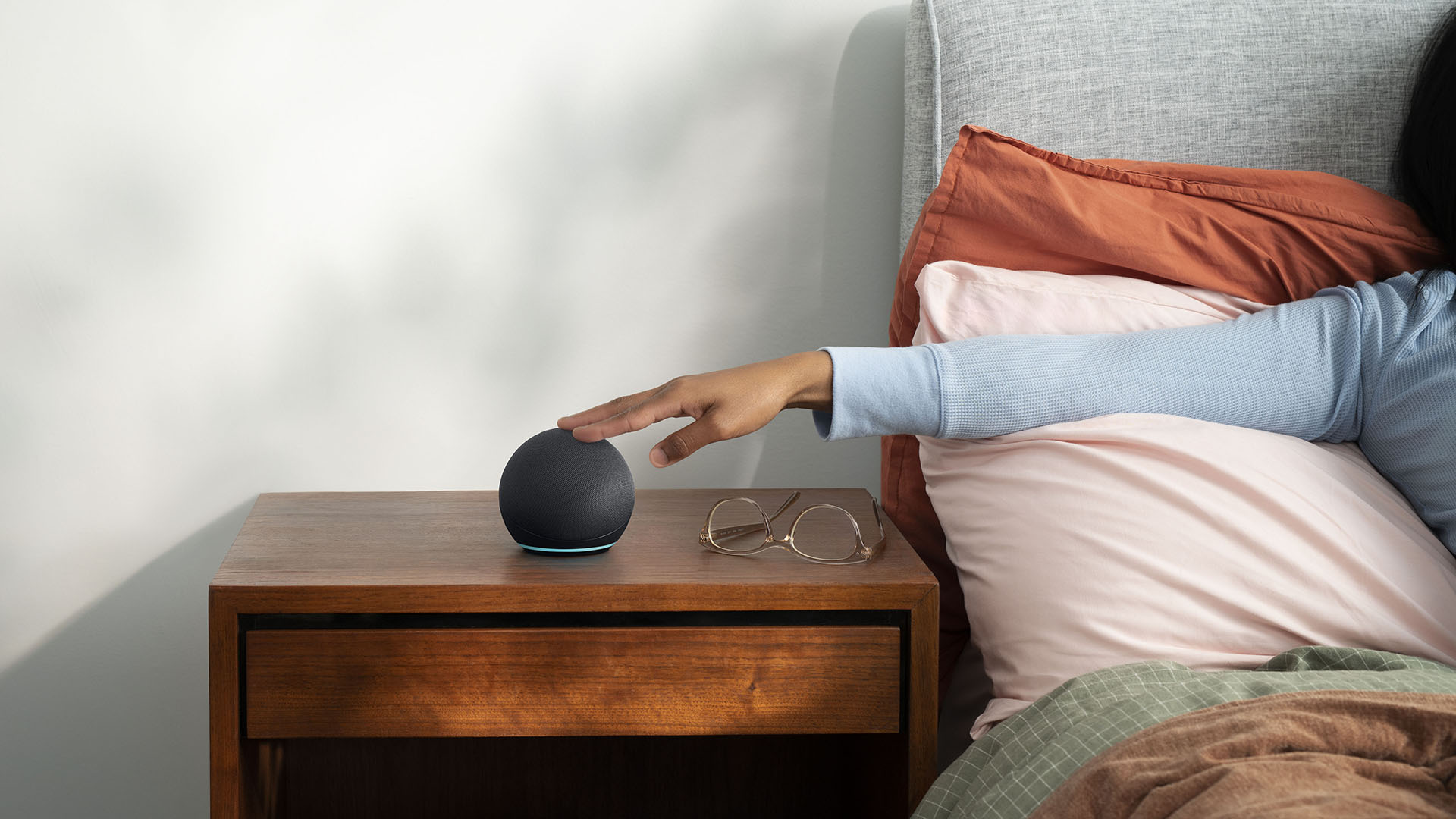How social media impacts your sleep (and what to do instead)
It's not blue light that's the biggest threat to your sleep

Many of us will spend at least part of our evenings scrolling social media. And while you probably have an inkling it might not be the best thing to promote sleep, you might not have really considered the impact it could be having on your nightly routine. We spoke to a sleep expert to dig into exactly why browsing social media is such a bad idea before bed, as well as providing some easily actionable tips to help you limit your evening doomscrolling.
How can social media impact your sleep?
"Several studies have found a link between excessive social media use and sleep difficulties," says Theresa Schnorbach, a psychologist and sleep scientist who works with Emma (one of our best mattress brands).
"Social media is deliberately designed to stimulate and excite you – that is precisely why it is so addictive and entertaining! As a result, we quickly lose track of time while watching videos or other content, and can easily spend hours on our smartphones, although we could have been sound asleep long ago."

Theresa Schnorbach is a psychologist and sleep scientist, specialized in Clinical Psychology and Cognitive Neuropsychology. She has completed post-graduate training in Cognitive Behavioural Therapy for Insomnia (CBT-I) with the German Sleep Society (DGSM), endorsed by the European Research Society. She works as a sleep specialist for bed brand Emma.
Isn't it the blue light that's the problem?
Most evening screen time conversations are in the context of the dangers of blue light. Put simply, studies like this one suggest that blue light is especially effective in suppressing melatonin (the hormone that prepares the body to sleep). So staring at a phone screen will make you feel awake and alert – not ideal when you're meant to be winding down.
However, Theresa thinks the focus on blue light might be overshadowing the real problem. "[The addictive nature of social media] has shown to be in fact more dangerous than the blue light that is so often talked about in the media," she says.
How to limit your evening screen time
Cutting down on social media time is easier said than done. Here are some tips for adding structure to your evening, with activities that will help you wind down, rather than perk up.
1. Set an alarm or screen limit
Going in with a vague plan to 'cut down on social media in the evening' isn't going to be effective for most people. Create some self-imposed rules that mean you actually stick to your intentions. "Setting an alarm for bedtime or using screen limit features on apps can help a lot to prioritize sleep," suggests Theresa.
Get daily insight, inspiration and deals in your inbox
Sign up for breaking news, reviews, opinion, top tech deals, and more.
Recommendations for when to stop looking at social media in the evening vary, but a minimum of one hour before you plan to go to sleep is a good starting place. If you have a smart speaker, you can set up an Alexa sleep routine that kicks in at the same time each night and doesn't require screens to switch on or off.

2. Swap in other activities
"To promote relaxation in the evening, make time for activities that are actually good for you," suggests Theresa. "Be it reading, going for a walk, listening to calm music, connecting with family and friends, yoga or more. Just stay away from activities that are too stimulating or trigger negative feelings."
All of these activities can help the body prepare for sleep, so pick the ones that appeal to you rather than trying to micromanage your sleep based on what others say should help. Using music to help you sleep is something Emma has been looking into specifically recently, and even coming up with its own album of original music that has been scientifically designed to be the perfect sleep playlist.
3. Try a bedtime box
If you're struggling to put your phone down, you could try a bedtime box. This is essentially a box of activities or evening essentials (a book, some sleep tea... whatever appeals to you). Take it out in the evening when it's time to start your nightly routine, then remove the nighttime contents and replace it with your phone or tablet. That then gets put away for the night, to be retrieved in the morning. As well as creating a clear break between 'daytime' and 'sleep time', the idea of having specific activities that you save for bedtime might help turn it into something you look forward to.

Ruth is TechRadar's Homes Editor specializing in air (vacuum cleaners, fans, air purifiers), and hair (hair dryers, straighteners and stylers). She has been in consumer journalism since 2020, reviewing and writing about everything from outdoor kit to mattresses and wellness gadgets, with stints on Tom's Guide and T3.